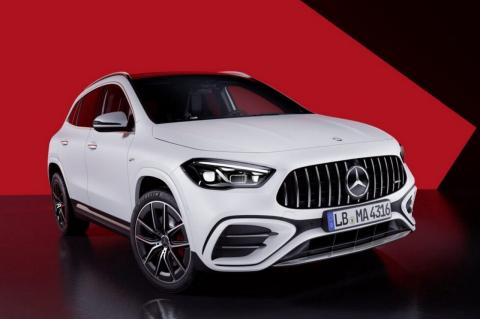Until 2035, in Europe, at least yes.
Talking about the future of combustion cars is complex. Europe seems to have declared war on them, although there are already discrepancies within the union, but in the rest of the world the obligation to adopt zero-emission mechanics seems much less urgent. In this situation, we ask ourselves, do three-cylinder engines have a future?
The quick answer is yes. In Europe, at least, until 2035. In the rest of the planet, they even have more margin. However, it does make sense to ask the question. The reason? They may be the drivers most affected by the arrival of electric cars. Let’s go by parts.
The market for zero emission models (always speaking from the European point of view) is being attacked from two very different sources: on the one hand, the premium brands with models of great performance and autonomy; on the other, generalist brands creating utility vehicles and small SUVs.
The problem lies precisely in the latter. It is precisely the access segments that use the smallest blocks, more and more often three-cylinder turbocharged engines, and it is these same segments that are the perfect breeding ground for betting on zero-emission models.
Of relatively contained size and weight, with a type of use that involves not doing many kilometers a day and which, moreover, is almost always in the city; It is the type of vehicle in which replacing a thermal engine with an electric one, of contained power and powered by a small battery with just the right range, is the smartest move.
It is a market in which not a few brands will opt for electrical mechanics and, on the contrary, it is quite possible that these same manufacturers choose not to invest in the development of new small heat engines (three cylinders), since their travel in Europe has an expiration date: 2035.
Taking into account the situation that arises in the medium term, it is possible that the companies choose to maintain their current generations of engines, with small tweaks, to transfer them to the following generations of their small cars and thus be able to keep them in their offer until the regulations prohibit its sale.
The hydrogen alternative
The veto of any type of combustion mechanics in the Old Continent is a hard blow for the subsistence of three-cylinder engines, but its development can continue for markets outside the borders of Europe.
In fact, they can be used as the basis for cleaner mechanics, as Toyota is doing, for example, which has used the three-cylinder from the Yaris to adapt it into a combustion block, but one that burns hydrogen, a technology that is relatively cheap and, although it has some emissions, it is much cleaner than diesel or gasoline.
This is a promising option that also allows the use of hydrogen that is not as pure and refined as that which is necessary for battery vehicles. It will be necessary to see how far its development goes, although probably in Europe we will not get to see it with its full potential.









